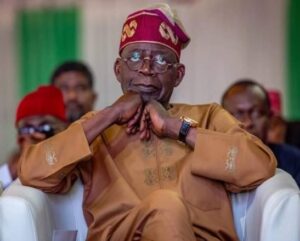Tinubu’s Troubling Legacy: Secrecy, Subsidy Scandals, and a New Presidential Jet
Tinubu’s Troubling Legacy: Secrecy, Subsidy Scandals, and a New Presidential Jet
By Olusegun Adeniyi

President Bola Tinubu
The credibility of President Bola Tinubu’s administration is in serious jeopardy. Entering office with a narrow mandate of just 37 percent of the total vote, Tinubu faced high expectations to overcome challenges and build a lasting legacy. However, these expectations now seem to be faltering. Alarmingly, despite the administration’s difficulties, both Tinubu and his aides persist in actions that only deepen the crisis, demonstrating a troubling level of impunity.
The situation took a turn when TheCable exposed that the federal government has continued to spend billions on fuel subsidies, despite official claims that the subsidy program had been eliminated. Former Vice President Atiku Abubakar further criticized the administration, alleging that Nigeria is effectively controlled by Tinubu, his family, and their associates. Abubakar claimed that the Nigerian National Petroleum Company Limited (NNPC Ltd) had transferred its retail operations to OVH, a company supposedly linked to Wale Tinubu’s Oando—though this has been contested by NNPC Ltd.
The controversy escalated when it was revealed that the government had secretly acquired a new presidential jet. The purchase was initially defended as a cost-saving measure, yet the public remains unaware of the jet’s actual cost or procurement details. This revelation came to light following a legal dispute between Ogun State and a Chinese firm, Zhongshan Fucheng Industrial Investment Co Limited, which had led to the seizure of several presidential aircraft in Paris, including the newly acquired jet. The plane was later released to ensure it would not disrupt President Tinubu’s upcoming travel plans, including a trip to China for the Forum on China-Africa Cooperation (FOCAC) summit.
In his recent column, Waziri Adio highlighted that the administration’s failure to openly acknowledge the continuation of the fuel subsidy problem undermines efforts to address it. He emphasized that transparency and accountability are crucial for managing the subsidy issue effectively. Unfortunately, this administration seems to consistently disregard these principles, as evidenced by the opaque handling of the Lagos-Calabar Coastal Road project contract and the concurrent management of several budgets.
TRENDING SONGS
 NPMA Appeals to Nigerian Government for Compensation After Lagos Market Fire
NPMA Appeals to Nigerian Government for Compensation After Lagos Market Fire
 Rest Every Four Hours, FRSC Issues Safety Guide for Fasting Motorists
Rest Every Four Hours, FRSC Issues Safety Guide for Fasting Motorists
 NNPC Boss Ojulari Bags UK Energy Institute Fellowship
NNPC Boss Ojulari Bags UK Energy Institute Fellowship
 Shock in Anambra: Bride Disappears Moments Before Wedding
Shock in Anambra: Bride Disappears Moments Before Wedding
 Nigerian Woman Returns ₦330 Million Accidentally Credited to Her Account
Nigerian Woman Returns ₦330 Million Accidentally Credited to Her Account
 APC Don Reach Morocco?’ VeryDarkMan Reacts to Seyi Tinubu Poster
APC Don Reach Morocco?’ VeryDarkMan Reacts to Seyi Tinubu Poster
 Bride Breaks Down in Tears as Wedding Meals Were Kept Secretly While Guests Go Home Hungry
Bride Breaks Down in Tears as Wedding Meals Were Kept Secretly While Guests Go Home Hungry
 Odogwu by Day, Robber by Night: How Marriage Joy Turned Into Tragedy
Odogwu by Day, Robber by Night: How Marriage Joy Turned Into Tragedy
 Nigerian Officials Allegedly Pocket N4–6B Weekly Through Smuggling Cartels at Seme–Badagry Border
Nigerian Officials Allegedly Pocket N4–6B Weekly Through Smuggling Cartels at Seme–Badagry Border
 Ahmad Yerima: Naval Officer to Face No Sanctions After Clash with Wike – Matawalle
Ahmad Yerima: Naval Officer to Face No Sanctions After Clash with Wike – Matawalle
Share this post with your friends on ![]()













